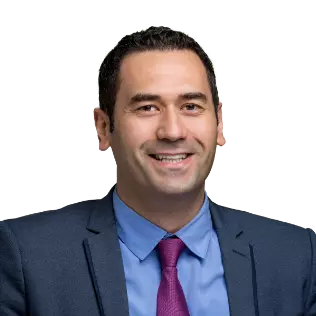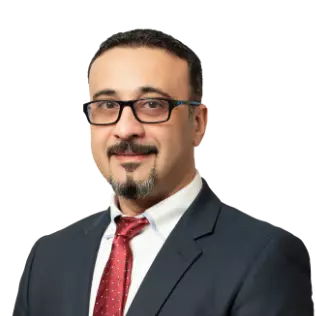
What is Strep Throat?
Strep Throat is an inflammation of the tonsils and throat caused by Group A Streptococcus, a type of bacteria. Serious inflammation and a painful throat are symptoms of strep throat. A quick strep test or a throat culture are commonly used by medical professionals to make the diagnosis. Antibiotics are typically part of the treatment.
Causes of Strep Throat
Streptococcus pyogenes, often known as group A streptococcus, is the bacterium that causes strep throat.
The streptococcal bacteria spread readily. They can be spread through shared food or drinks, or through droplets produced when an infected person coughs or sneezes. The bacteria can also be acquired via a doorknob or other surface and then transferred to your mouth, nose, or eyes.
Symptoms of Strep Throat
Strep throat often causes moderate symptoms, but it can be very painful.
Typical signs might include the following:
- Fever
- Pain Swallowing
- A sore throat that may appear red
- Tonsils with red and swelling
- Pus-filled white streaks or spots on the tonsils
- Petechiae or little red dots that appear on the mouth’s roof
- Swollen lymph nodes
When to see a doctor for Strep Throat?
If you or your child exhibits any of these symptoms, consult your doctor right away:
- the presence of painful, swollen lymph nodes along with a sore throat
- a cough that persists for more than 48 hours
- the flu
- a rash and aching throat combined
- breathing or swallowing issues
- no signs of recovery after taking antibiotics for 48 hours if strep has been identified
Strep Throat Risk Factors
Strep throat can affect anyone, but certain factors can increase the likelihood that they will.
Strep throat affects children more commonly than it does adults. Children aged between 5 and 15 are particularly vulnerable. Adults are more likely to get strep throat if they are:
- parents of school-age children
- adults who frequently connect with children
Having regular close contact with someone who has strep throat is the main risk factor for infection. For instance, the bacteria that causes strep throat frequently infects other family members.
Everywhere there are plenty of people, infectious diseases tend to spread. Group A strep infections are more likely to occur in crowded environments. These conditions consist of the following:
- Schools
- Childcare facilities
- Facilities for military training
Strep Throat Complications
A strep throat might lead to complications, including the following:
- Abscesses (pupil-filled cavities) in the neck or around the tonsils
- Enlarged neck lymph nodes
- Nasal infections
- Infected ears
- Arthritic fever
- Streptococcal glomerulonephritis
Strep Throat Diagnosis
You should visit a doctor if you suspect that you have strep throat. The doctor will conduct a physical examination and inquire about your problems. A strep test might also be administered. The symptoms of viral diseases often resemble those of strep throat. To confirm the presence of group A Streptococcus bacterium in your throat, it is crucial that you do a strep test.
A strep test is quick and harmless, though it may be painful for some people. The back of your throat will be cleaned by a medical professional using the tip of a long, specialized cotton swab. Afterwards, the healthcare professional will either conduct a fast strep test using the swab or submit the swab to a laboratory for testing.
Strep Throat Treatment
To eradicate the germs that cause the infections, antibiotics may treat strep throat.
Antibiotics, like penicillin and amoxicillin, are frequently used by doctors to treat strep throat. A different antibiotic may be recommended by the doctor if you are allergic to penicillin.
Your doctor may prescribe an antibiotic in pill or liquid form, give you an antibiotic shot, or both. The typical dosage is 10 days of pills or liquid. Follow the advice of your provider. Even if you feel better, you still need to take the entire prescribed dosage because the germs may still be alive.
Strep Throat Prevention
The best defense against strep throat is proper cleanliness. Wash your hands frequently for 20 seconds with soap and water. To protect yourself, it's especially crucial to wash your hands before eating and after sneezing and coughing (to protect others). There are further measures you can take to avoid developing strep throat, such as:
- If soap and water are not available, sterilize your hands using an alcohol-based product.
- Sneeze or cough into a tissue if at all possible. Put used tissues in the trash.
- If you don't have a tissue on hand, cough or sneeze into your elbow rather than your hands.
- While you're sick, don't share your own cups and utensils with others.
References
Bisno, A. L., Peter, G. S., & Kaplan, E. L. (2002). Diagnosis of strep throat in adults: are clinical criteria really good enough?. Clinical infectious diseases, 35(2), 126-129.
Ebell, M. H. (2003). Strep throat. American family physician, 68(5), 937.
Ebell, M. H., Smith, M. A., Barry, H. C., Ives, K., & Carey, M. (2000). Does this patient have strep throat?. Jama, 284(22), 2912-2918.
Thai, T. N., Dale, A. P., & Ebell, M. H. (2018). Signs and symptoms of group A versus non-group A strep throat: a meta-analysis. Family practice, 35(3), 231-238.
Meet our doctors from the Ear Nose and Throat (ENT) department
|
||||||||
|
||||||||
|
||||||||
|
||||||||
|
||||||||
|
||||||||
|
||||||||
|
||||||||
|
||||||||
|
||||||||
|
||||||||
|
||||||||
|
||||||||
|
||||||||
|
||||||||
|
||||||||
|
||||||||
|
||||||||
|
||||||||
|
||||||||
|
||||||||
|
||||||||
|
||||||||
|
||||||||
|
||||||||
|
||||||||
|
||||||||
|
||||||||
|
||||||||
|
||||||||
|
||||||||
|
||||||||
|
||||||||
|
||||||||
|
||||||||
|
||||||||
Similar Posts
teleMEDCARE App
Download teleMEDCARE app from Google Play or App Store to connect immediately to Medcare doctors at a click of a button and without an appointment.

Home Services
We offer our patients a broad range of home health care services in the comfort of their own homes. Book an appointment for lab tests, vaccinations, nurses and physiotherapists.

Chronic Care
Know more about our Chronic Care Management Programme in partnership with Damana Saicohealth.

teleMEDCARE App mobile
Download teleMEDCARE app from Google Play or App Store to connect immediately to Medcare doctors at a click of a button and without an appointment.

Home Services
We offer our patients a broad range of home health care services in the comfort of their own homes. Book an appointment for lab tests, vaccinations, nurses and physiotherapists.

Spotii
We have partnered with Spotii to offer a more flexible way to pay - Pay over time for your purchase. No interest, no cost & no catch.










































